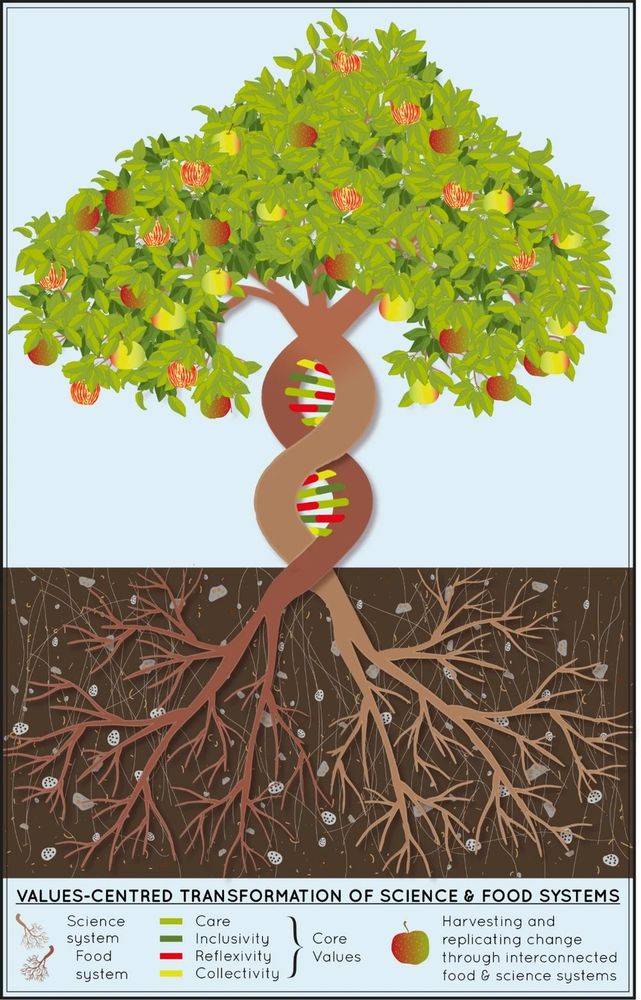
🔗 Open access: doi.org/10.1016/j.ec...
Grateful to all who made this possible and for the strong collaboration between @cdeunibe.bsky.social and @wyssacademy.bsky.social @unibe.ch!
🔗 Open access: doi.org/10.1016/j.ec...
Grateful to all who made this possible and for the strong collaboration between @cdeunibe.bsky.social and @wyssacademy.bsky.social @unibe.ch!
#Multifunctional landscapes — those that integrate forest conservation with diverse livelihoods — are key to balancing production, conservation & well-being.
This study offers spatial insights to guide inclusive land use planning in Savannakhet Province. (Photo: © Amy Scott/ IUCN)

#Multifunctional landscapes — those that integrate forest conservation with diverse livelihoods — are key to balancing production, conservation & well-being.
This study offers spatial insights to guide inclusive land use planning in Savannakhet Province. (Photo: © Amy Scott/ IUCN)
- ES supply is highest in forested/shifting cultivation areas
- Food supply peaks in lowland monocultures — but at a cost
- Demand is widespread, especially for pollination, water & cultural values
- Trade-offs between food & species are real

- ES supply is highest in forested/shifting cultivation areas
- Food supply peaks in lowland monocultures — but at a cost
- Demand is widespread, especially for pollination, water & cultural values
- Trade-offs between food & species are real
🥗 Food
💧 Water
🌊 Water Quality
🐝 Pollination
🦉 Species
🏞️ Tourism
#InVESTmodel #Fieldwork #Savannakhet #LandscapeEcology
🥗 Food
💧 Water
🌊 Water Quality
🐝 Pollination
🦉 Species
🏞️ Tourism
#InVESTmodel #Fieldwork #Savannakhet #LandscapeEcology
📚 Carmenta et al. (2025). Current Opinion in Environmental Sustainability
📖 Read the full paper: bit.ly/3ZqNvlC
@cdeunibe.bsky.social @wyssacademy.bsky.social
📚 Carmenta et al. (2025). Current Opinion in Environmental Sustainability
📖 Read the full paper: bit.ly/3ZqNvlC
@cdeunibe.bsky.social @wyssacademy.bsky.social
Let’s stop blaming poverty — and start addressing inequality, consumption, and colonial legacies.
True conservation is just, inclusive, and transformative. 🌍🌺 #Transformation #Equity #SystemChange
Let’s stop blaming poverty — and start addressing inequality, consumption, and colonial legacies.
True conservation is just, inclusive, and transformative. 🌍🌺 #Transformation #Equity #SystemChange
🔁 Connects local stewardship with systemic drivers
💬 Embraces plural values & worldviews
💪 Shifts power to Indigenous Peoples & local communities
📉 Targets distant wealth-based drivers of biodiversity loss
#ConnectedConservation
🔁 Connects local stewardship with systemic drivers
💬 Embraces plural values & worldviews
💪 Shifts power to Indigenous Peoples & local communities
📉 Targets distant wealth-based drivers of biodiversity loss
#ConnectedConservation
It shows how hegemonic values, disciplinary lock-in, and governance inertia reinforce PBLA-informed conservation — and how Connected Conservation can counteract this by embracing plural values and systemic change.

It shows how hegemonic values, disciplinary lock-in, and governance inertia reinforce PBLA-informed conservation — and how Connected Conservation can counteract this by embracing plural values and systemic change.
We identify 3 key forces:
🔹 Hegemonic values
🔹 Disciplinary dominance
🔹 Convenient governance
Together, they obscure the role of wealth and power in biodiversity decline. 🏦🌿 #EnvironmentalJustice
We identify 3 key forces:
🔹 Hegemonic values
🔹 Disciplinary dominance
🔹 Convenient governance
Together, they obscure the role of wealth and power in biodiversity decline. 🏦🌿 #EnvironmentalJustice
But: this assumption is flawed, colonial in origin, and ignores deeper drivers of biodiversity loss. #PBLA
But: this assumption is flawed, colonial in origin, and ignores deeper drivers of biodiversity loss. #PBLA
And thank you, Wyss Academy for Nature and @cdeunibe.bsky.social, who enabled me to conduct this work!
And thank you, Wyss Academy for Nature and @cdeunibe.bsky.social, who enabled me to conduct this work!
Curious to learn more? Dive into our paper for the full story! bit.ly/3OfOQFO

Curious to learn more? Dive into our paper for the full story! bit.ly/3OfOQFO
To create meaningful change, we need to embody the principles we advocate.
To create meaningful change, we need to embody the principles we advocate.
✅ Embrace reflexivity to challenge assumptions
✅ Foster inclusivity to broaden participation
✅ Build collective care into their work
✅ Embrace reflexivity to challenge assumptions
✅ Foster inclusivity to broaden participation
✅ Build collective care into their work
Turns out, aligning researcher values with the transformations we study is critical.
Turns out, aligning researcher values with the transformations we study is critical.
✨ Care
🤔 Reflexivity
🌍 Inclusivity
🤝 Collectivity
Here’s how a values-centered approach transformed our research on food systems. 👇

✨ Care
🤔 Reflexivity
🌍 Inclusivity
🤝 Collectivity
Here’s how a values-centered approach transformed our research on food systems. 👇

